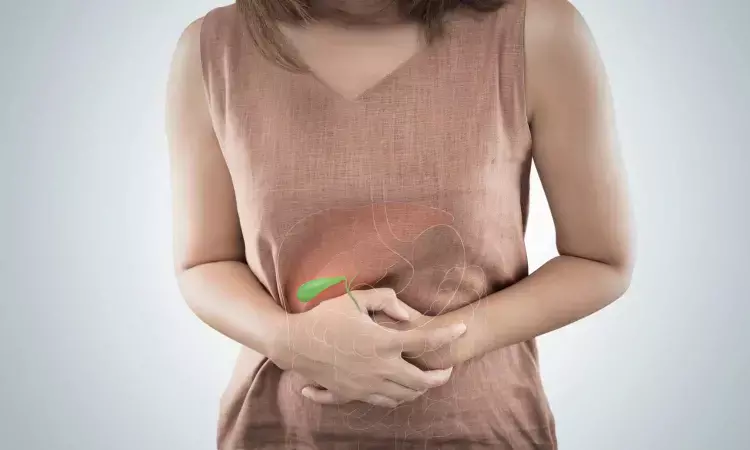- Home
- Medical news & Guidelines
- Anesthesiology
- Cardiology and CTVS
- Critical Care
- Dentistry
- Dermatology
- Diabetes and Endocrinology
- ENT
- Gastroenterology
- Medicine
- Nephrology
- Neurology
- Obstretics-Gynaecology
- Oncology
- Ophthalmology
- Orthopaedics
- Pediatrics-Neonatology
- Psychiatry
- Pulmonology
- Radiology
- Surgery
- Urology
- Laboratory Medicine
- Diet
- Nursing
- Paramedical
- Physiotherapy
- Health news
- Fact Check
- Bone Health Fact Check
- Brain Health Fact Check
- Cancer Related Fact Check
- Child Care Fact Check
- Dental and oral health fact check
- Diabetes and metabolic health fact check
- Diet and Nutrition Fact Check
- Eye and ENT Care Fact Check
- Fitness fact check
- Gut health fact check
- Heart health fact check
- Kidney health fact check
- Medical education fact check
- Men's health fact check
- Respiratory fact check
- Skin and hair care fact check
- Vaccine and Immunization fact check
- Women's health fact check
- AYUSH
- State News
- Andaman and Nicobar Islands
- Andhra Pradesh
- Arunachal Pradesh
- Assam
- Bihar
- Chandigarh
- Chattisgarh
- Dadra and Nagar Haveli
- Daman and Diu
- Delhi
- Goa
- Gujarat
- Haryana
- Himachal Pradesh
- Jammu & Kashmir
- Jharkhand
- Karnataka
- Kerala
- Ladakh
- Lakshadweep
- Madhya Pradesh
- Maharashtra
- Manipur
- Meghalaya
- Mizoram
- Nagaland
- Odisha
- Puducherry
- Punjab
- Rajasthan
- Sikkim
- Tamil Nadu
- Telangana
- Tripura
- Uttar Pradesh
- Uttrakhand
- West Bengal
- Medical Education
- Industry
Clebopride and domperidone efficacious options for alleviating gastroparesis symptoms

Italy: According to a systematic review and network meta-analysis published in Gastroenterology, only two drugs, namely, clebopride and domperidone, are efficacious for treating gastroparesis symptoms.
The researchers of this study have highlighted the lack of efficacious drugs for managing gastroparesis. The issue is a cause of concern for doctors, patients, pharma companies and regulatory agencies.
There has been an expansion in managing GIT conditions like inflammatory bowel disease. Following the same for gastroparesis may be viewed as a high-risk strategy.
Considering this concerning background, researchers did a meta-analysis of RCTs to check the relative efficacy and safety of drugs used in gastroparesis, as the data remains unknown in this context.
They searched the literature till September 7, 2022.
The drug efficacy was judged based on gastroparesis symptoms like nausea, vomiting, abdominal pain, bloating, and safety as per adverse events leading to withdrawal.
The study results include the following:
- Twenty-nine identified RCTs had 3772 patients.
- For efficacy, clebopride ranked first with an RR of 0.30
- This was followed by domperidone with RR 0.68.
- No other drug had superiority compared to the placebo.
- Two drug classes were efficacious in rank order, oral dopamine antagonists of RR 0.58 followed by tachykinin-1 antagonists with RR 0.69.
- Regarding symptoms, oral metoclopramide ranked first for nausea, fullness and bloating with RR 0.46, 0.67 and 0.53. These findings were based on one small trial.
- When compared to placebo, only prucalopride was related to adverse events.
To conclude, oral dopamine antagonists and tachykinin-1 antagonists were more efficacious than placebo for gastroparesis.
They said our findings could make practical recommendations consistent with advice from regulatory agencies.
Metoclopramide, in liquid or tablet form, has a maximum dosage of 10 mg before each meal and 10 mg at bedtime for three months.
Domperidone at a dose of 10 mg 4 times daily requires special guidance provided by the FDA, with a precautionary QT interval measurement on an electrocardiogram before the prescription.
To abort the emesis cycle, prescribing aprepitant 80 mg daily for three days could be prescribed.
There is a need for efficacious therapies for patients with gastroparesis.
Further reading:
Ingrosso, Maria Rosa, et al. “Efficacy and Safety of Drugs for Gastroparesis: Systematic Review and Network Meta-analysis.” Gastroenterology, Elsevier BV, Dec. 2022. Crossref,https://doi.org/10.1053/j.gastro.2022.12.014.
BDS, MDS in Periodontics and Implantology
Dr. Aditi Yadav is a BDS, MDS in Periodontics and Implantology. She has a clinical experience of 5 years as a laser dental surgeon. She also has a Diploma in clinical research and pharmacovigilance and is a Certified data scientist. She is currently working as a content developer in e-health services. Dr. Yadav has a keen interest in Medical Journalism and is actively involved in Medical Research writing.
Dr Kamal Kant Kohli-MBBS, DTCD- a chest specialist with more than 30 years of practice and a flair for writing clinical articles, Dr Kamal Kant Kohli joined Medical Dialogues as a Chief Editor of Medical News. Besides writing articles, as an editor, he proofreads and verifies all the medical content published on Medical Dialogues including those coming from journals, studies,medical conferences,guidelines etc. Email: drkohli@medicaldialogues.in. Contact no. 011-43720751


